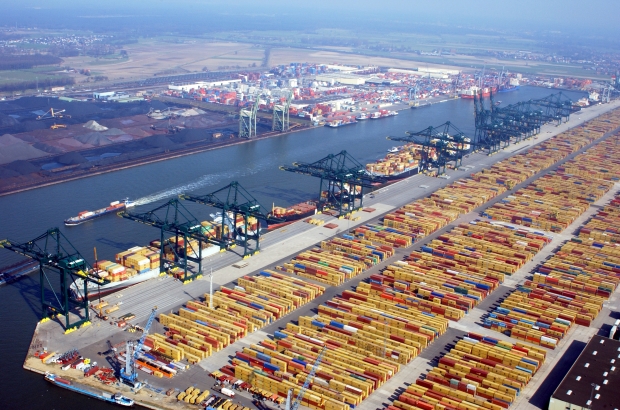- Daily & Weekly newsletters
- Buy & download The Bulletin
- Comment on our articles
Belgium presents new plan in fight against drug trafficking
Belgium is looking to tackle the issue of drug trafficking in the country – particularly in the city and port of Antwerp – with a new commissioner, more police, and more drug screenings.
The port of Antwerp itself, which is one of the largest cocaine hubs in the world due to its central proximity between two halves of the globe, will be getting 100 new police officers, RTBF reports.
Drugs have been a major concern for the federal government for months, with Antwerp singled out for illegal trafficking and recently the murder of a girl in the neighbourhood of Merksem.
Justice minister Vincent Van Quickenborne (Open VLD) also had to be placed under police protection on several occasions due to kidnapping threats.
A national security council was held last week to discuss a series of measures to be adopted to further combat drug trafficking, mainly in Antwerp.
The new drug plan includes a strengthening of the port police with 100 new officers in the short term and another 100 in the city overall. The port will also see better screening of port personnel and of containers considered to be high risk.
Antwerp mayor Bart De Wever said he was grateful to see that concrete decisions had finally been taken by the national security council, but that he remains sceptical about the additional police resources.
“If the resources are actually provided for in the budget, then I will believe it,” said De Wever.
Prime minister Alexander De Croo seemed to single out De Wever’s comments in his own remarks: “The fight against cocaine trafficking requires a global approach in which everyone cooperates. This is no longer a time for complaining.”
Ine Van Wymersch, the prosecutor-general for Hal-Vilvoorde, will be the national drugs commissioner in charge of coordinating the fight against drug traffickers in Belgium.
Van Wymersch will work together with the ministers of justice, home affairs, health and finance, and will work closely with federal, regional and local authorities. She will report regularly to the national security council.
Van Wymersch is fluent in both Dutch and French and was a youth magistrate before becoming the spokesperson for the Brussels public prosecutor's office and then the public prosecutor of Hal-Vilvoorde in the Brussels judicial district.
But the challenge she faces is great: Antwerp, Europe's second largest port, is the main point of entry for cocaine into Europe.
There were 110 tonnes of cocaine seized there last year alone. The nearby port of Rotterdam faces similar problems, which is why Belgium and the Netherlands, along with the five largest shipping companies that transit through both ports, have signed an agreement to combat drug trafficking together.
“We have to act. The integrity of our country is at stake,” Van Wymersch said. “We have to hit the criminals where it hurts: their property, their money and their investments.”
‘Smart’ containers will be placed in both ports, which should make it more difficult to bring in drugs.
“They detect the opening of a door, a change in temperature, and give indications about any drugs inside,” explained Van Quickenborne.
But no one is looking at the situation with rose-coloured glasses. The two ports are key for any cargo that travels from the eastern hemispheres to the western ones, and so long as there is demand for drugs (which are often made in the eastern hemisphere in places such as central and south America), there will be demand for shipping it abroad.
“We will never win the war against [drugs], but we have to reduce drug crime to an acceptable level,” said De Wever.
A 10-year study conducted in 79 cities determined that Antwerp is now the centre of European trafficking, in part by taking urine samples from the Antwerp South wastewater treatment plant, in which cocaine can be detected.
“This is a study in which everyone participates without knowing it,” explained Natan Van Wichelen, researcher at the University of Antwerp's toxicology centre.
“This allows us to collect data on a huge number of people, which gives us a very representative picture of society.”
Measurements taken at the same time using the same method in other cities provide an accurate mapping of cocaine consumption across Europe.
In 2021, the last full year of measurements, the daily concentrations of cocaine measured at the Antwerp-South sewage treatment plant are far higher than the concentrations observed in other cities.
“If you look at the results over the last 10 years, Antwerp has the highest concentrations on the days or weeks when we took measurements,” said Van Wichelen.
Antwerp is ahead of other major cities such as Amsterdam, Barcelona and Paris, and Brussels is the fifth city in the ranking, with measures about half of those for Antwerp.
Van Wichelen said that the pandemic certainly had an effect on the data, “but there is one constant: the concentrations measured in Antwerp South have always been at the top of the ranking of participating cities since 2011.”

















